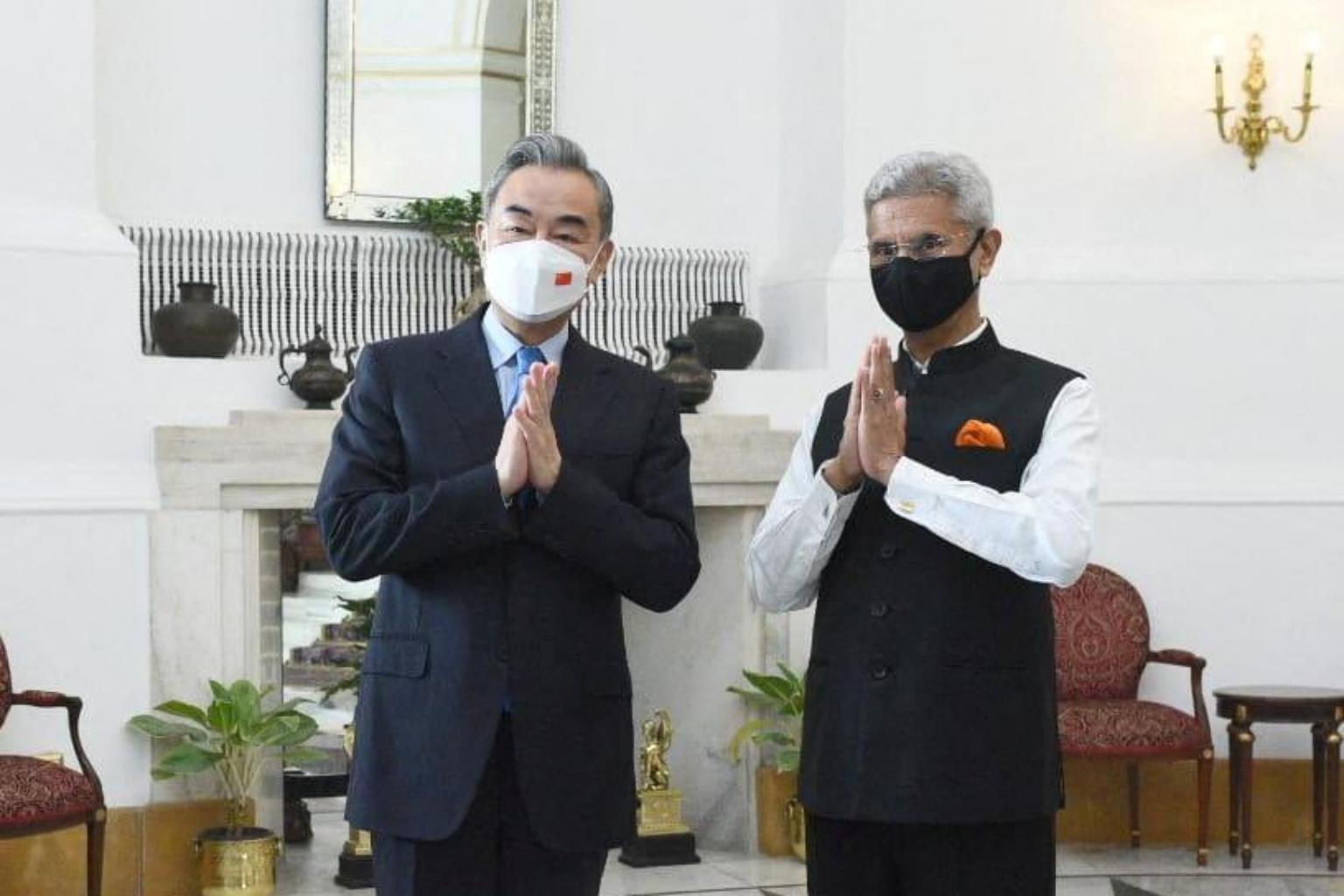India pushes China for speedy resolution of border issue
Sign up now: Get insights on Asia's fast-moving developments

Chinese Foreign Minister Wang Yi (left) is greeted by Indian Foreign Minister S. Jaishankar in New Delhi, on March 25, 2022.
PHOTO: S. JAISHANKAR/TWITTER
NEW DELHI - India has said that ties with China cannot be normalised without disengagement of troops and peace along their disputed border.
After talks with his Chinese counterpart, Wang Yi, India's external affairs minister S. Jaishankar said the current troop buildup on the border was "not normal."
The two ministers held talks on bilateral and global issues on Friday, a day after Mr Wang arrived in New Delhi for a visit initiated by the Chinese side.
Dr Jaishankar said resolving the border row remained a "work in progress" and that talks between the two sides were moving at a less than desirable speed.
"I was very honest in my discussions with the Chinese foreign minister, especially in conveying our national sentiments... The friction and tensions that arose since China's deployment in 2020 cannot be reconciled with the normal relations between the two neighbours," said Dr Jaishankar.
He said the meeting with Mr Wang was aimed at expediting the border talks.
Mr Wang on Friday also met with India's National Security Advisor, Mr Ajit Doval.
The worst clashes between Indian and Chinese troops in recent memory occurred in June 2020 in the Galwan Valley in Ladakh, triggering a massive buildup of forces on both sides of the frontier. Indian media reports say each side has deployed around 50,000 to 60,000 troops along the Line of Actual Control, the not-too-well-defined de facto border.
Both sides have held 15 rounds of talks over the past two years and have managed to disengage in a number of areas, including the Galwan Valley, Pangong Tso and in Gogra Heights. But they have been unable to move forward similarly from remaining friction points such as at Depsang and Demchok.
Reuters news agency on Friday said Mr Wang issued a statement in which he said that China and India should work together to promote peace and stability around the world.
"The two sides should... put the differences on the boundary issue in an appropriate position in bilateral relations, and adhere to the correct development direction of bilateral relations," the Chinese foreign minister was quoted as saying.
"China does not pursue the so-called "unipolar Asia" and respects India's traditional role in the region. The whole world will pay attention when China and India work hand in hand," he added.
The two foreign ministers covered a wide range of issues during three hours of talks, including Ukraine in which both men agreed on the necessity for an immediate ceasefire and a return to dialogue.
Both India and China have thus far refrained from directly condemning Russia for invading its neighbour.
"Where we shared a common element (on Ukraine) was that both of us agreed on the importance of an immediate ceasefire as well as a return to diplomacy and dialogue," said Dr Jaishankar.
Mr Wang arrived in India after making his first visit to Afghanistan since the Taliban took power. The Chinese minister left New Delhi for Nepal on Friday.


